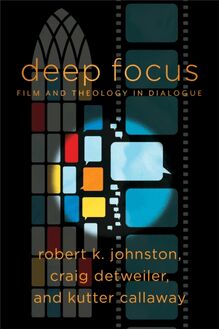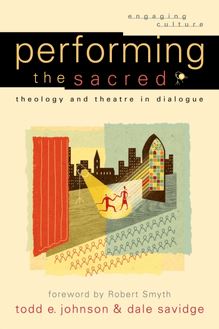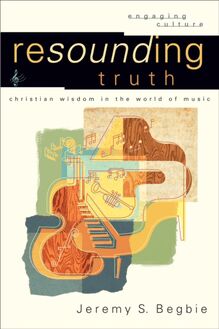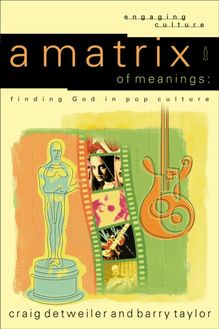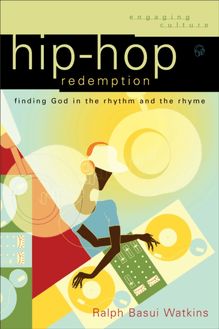-
 Univers
Univers
-
 Ebooks
Ebooks
-
 Livres audio
Livres audio
-
 Presse
Presse
-
 Podcasts
Podcasts
-
 BD
BD
-
 Documents
Documents
-
- Cours
- Révisions
- Ressources pédagogiques
- Sciences de l’éducation
- Manuels scolaires
- Langues
- Travaux de classe
- Annales de BEP
- Etudes supérieures
- Maternelle et primaire
- Fiches de lecture
- Orientation scolaire
- Méthodologie
- Corrigés de devoir
- Annales d’examens et concours
- Annales du bac
- Annales du brevet
- Rapports de stage
La lecture à portée de main
Vous pourrez modifier la taille du texte de cet ouvrage
Découvre YouScribe en t'inscrivant gratuitement
Je m'inscrisDécouvre YouScribe en t'inscrivant gratuitement
Je m'inscrisEn savoir plus
Vous pourrez modifier la taille du texte de cet ouvrage
En savoir plus

Description
Sujets
Informations
| Publié par | Baker Publishing Group |
| Date de parution | 18 mars 2014 |
| Nombre de lectures | 0 |
| EAN13 | 9781441244994 |
| Langue | English |
| Poids de l'ouvrage | 1 Mo |
Informations légales : prix de location à la page 0,0691€. Cette information est donnée uniquement à titre indicatif conformément à la législation en vigueur.
Extrait
W ILLIAM A. D YRNESS AND R OBERT K. J OHNSTON , SERIES EDITORS
The Engaging Culture series is designed to help Christians respond with theological discernment to our contemporary culture. Each volume explores particular cultural expressions, seeking to discover God’s presence in the world and to involve readers in sympathetic dialogue and active discipleship. These books encourage neither an uninformed rejection nor an uncritical embrace of culture, but active engagement informed by theological reflection.
© 2014 by James W. Skillen
Published by Baker Academic
a division of Baker Publishing Group
P.O. Box 6287, Grand Rapids, MI 49516-6287
www . bakeracademic . com
Ebook edition created 2014
All rights reserved. No part of this publication may be reproduced, stored in a retrieval system, or transmitted in any form or by any means—for example, electronic, photocopy, recording—without the prior written permission of the publisher. The only exception is brief quotations in printed reviews.
Library of Congress Cataloging-in-Publication Data is on file at the Library of Congress, Washington, DC.
ISBN 978-1-4412-4499-4
Scripture quotations are from the Holy Bible, New International Version®. NIV®. Copyright © 1973, 1978, 1984, 2011 by Biblica, Inc.™ Used by permission of Zondervan. All rights reserved worldwide. www.zondervan.com
contents
Cover i
Series Page ii
Title Page iii
Copyright Page iv
Acknowledgments vii
Introduction ix
Part 1: The Biblical Drama 1
1. God’s Kingdom Coming 3
2. The Revealing Image 17
3. Citizenship in the Kingdom 33
Part 2: Key Historical Developments 45
4. Constantine, Augustine, and the Fraught Future of “Christian” Politics 47
5. From Augustine to the Splintering of Christendom 63
6. Nations, States, and Protestant Reformers 81
7. From the Reformation to Contemporary Engagement 101
Part 3: Engaging Politics Today 115
8. Viewpoint as Standpoint: Where Do We Begin? 117
9. Engagement for What Kind of Political Community? 127
10. Citizenship as Vocation 143
11. Family, Marriage, and Education 155
12. Economics and the Environment 169
13. Politics in One World 183
Notes 197
Index 211
Back Cover 215
acknowledgments
It was a considerable privilege to receive an invitation from William Dyrness and Robert Johnston to contribute a volume to the Engaging Culture series. And it has been a pleasure working with Baker Academic editors Robert Hosack and Lisa Ann Cockrel and the great team at the Baker Publishing Group. Thank you all very much.
Behind the writing of this book stand so many teachers, colleagues, scholars, practitioners, and friends that I cannot begin to count or list them. But I want to thank at least a few from whom I’ve received much help and encouragement, particularly during the years I traveled throughout the United States and much of the world as the director of the Center for Public Justice.
First of all I want to thank my wife Doreen for her love and for guarding the time and space needed for concentrated research and writing. She also provided much-appreciated proofreading and other skills along the way. In a wider circle, thank you Bruce Wearne, Steve Snoey, Rockne McCarthy, Stanley Carlson-Thies, Harold Heie, Wendy Sereda, Charles Glenn, William Harper, Jonathan Chaplin, David Koyzis, Roy Clouser, Timothy Sherratt, Steve Meyer, Ronald Sider, Max Stackhouse, Dennis Hoover, Bob Goudzwaard, Albert Wolters, Calvin Seerveld, Raymond Van Leeuwen, Jean Porter, Michael Goheen, Craig Bartholomew, Adolfo Garcia de la Sienra, Nathan Berkeley, Sander Griffioen, Henk Gerrtsema, Danie Strauss, Albert Hengelaar, Alan Cameron, Tyler Johnson, Benyamin Intan, Yadi Lima, Lay Hendra Wijaya, David Kim, David Van Heemst, Adrianna Menasse, Kathryn Yarlett, Steve Bishop, and Chris Gousmett. None of them bears responsibility for the final product, but for what each has contributed I am very grateful.
James W. Skillen January 2014
introduction
Natural disasters are not the only things shaking the earth. The world’s political and economic institutions are quaking, and many are crumbling. The Arab Awakening that began in 2011 is changing the face of the Middle East and North Africa. Protests in China, Russia, and dozens of other countries continue on a low burn—low at least for now. Growing numbers of Europeans are skeptical about the future of the European Union and are protesting against their national governments. Many other countries are in turmoil—even civil war—where weak governments are unable to subdue opposing factions. And citizens in the United States are disgusted with Washington’s paralysis, caused in part by divisions between those who want the federal government to do more and those who want to shrink it before it does any more harm.
Two decades ago, the end of the Cold War seemed to open the way to greater peace, prosperity, and democracy. Yet that is when degrading poverty in many parts of the world became more visible. That is when the work of radical Islamists broke out into the open, leading to 9/11 and to the long, divisive wars in Afghanistan and Iraq. That is when close observers noticed that religion had not gone into hiding as many had predicted it would because of so-called secular progress. Today, talk of religion and politics is all the rage, in part because real struggles of a political-religious nature are raging all around us.
What a time to reexamine Christian engagement in political life! What a time to try to gain a deeper understanding of political society, the responsibilities of citizenship, and the task of government. Regardless of the difficulties that will undoubtedly hamper such a quest, I feel compelled to undertake it and welcome your company on the journey.
Three Basic Questions
In 1789 the first vice president of the United States, John Adams, declared, “We have no government armed with power capable of contending with human passions unbridled by morality and religion. Our constitution was made only for a moral and a religious people.” 1 In 2006 author Darryl Hart wrote, “[Christianity] in its classic formulations . . . has very little to say about politics or the ordering of society. . . . [It] has little to say explicitly about the sort of polity in which Americans have been living for the last 230 years.” 2
Those contrasting judgments raise three basic questions I want to address in this book. The first is this: What is the relation between politics and its cultural context (including religion and morality)? Second, what is government for and how should its responsibilities be properly exercised? And third, what, if anything, does Christianity have to say about political life and the ordering of society, and what, if any, political responsibility does the Christian faith urge upon those who profess to follow Jesus Christ?
When John Adams made the comment just quoted, he took for granted an Americanized version of Protestant Christianity that he believed was a necessary foundation of the new republic. The kind of government the Constitution established was, in his estimation, incapable of “contending with human passions” if the people did not maintain a strong sense of moral responsibility grounded in the fear of God. If Adams was correct, might we surmise that the instability and weaknesses of American government today are due to a weakening of the moral and religious character of the people?
When Darryl Hart made his comments, he was convinced that Christianity is something “spiritual and eternal . . . [a faith] occupied with a world to come rather than the passing and temporal affairs of this world.” 3 If Hart was correct, might we surmise that America’s problems (and perhaps the problems of many other nations in the world) exist because of mistaken attempts by Christians (and people of other faiths) to take political action in the name of their faith? 4 Which of these judgments is closer to the truth? Is some form of Christianity a necessary foundation of the American republic, such that without it the republic will fail, or is Christianity something spiritual that should be kept at a distance from “the passing and temporal affairs of this world,” whether in the United States or in any other country?
At first hearing, the convictions of Adams and Hart seem at odds with each other. On further reflection, however, we can see that they share something. They both assume politics is separate from cultural life. If citizens do not bring good morality and religion to bear on political life, then, from Adams’s point of view, there is no hope for the endurance of America’s constitutional system. This represents a rather low view of politics. The political system apparently requires something from the outside to keep it honest because its internal operations cannot withstand contending human passions. Hart may hold a different view of politics, but he too believes that any Christian influence on government comes from something transcendent to, and separate from, the political system. Spiritual Christianity should certainly shape the moral behavior of Christians who might, thereby, have a positive influence in public life, but that does not mean Christianity should be expected to have something to say directly to the work of government.
Where do these views of politics, culture, and religion come from? Are they widely shared by Christians in the United States and elsewhere in the world? What are the grounds for such convictions? And how different are the views of Christians in other parts of the world from the views of American Christians? Insofar as politics, culture, and religion are dimensions of human experience everywhere, and insofar as Christianity is a global religion that makes universal claims, it would be a big mistake to imagine that American practices and controversies can be isolated from those in the rest of the world. Moreover, American life is now so tightly bound up with global developments, it wo
-
 Univers
Univers
-
 Ebooks
Ebooks
-
 Livres audio
Livres audio
-
 Presse
Presse
-
 Podcasts
Podcasts
-
 BD
BD
-
 Documents
Documents
-
Jeunesse
-
Littérature
-
Ressources professionnelles
-
Santé et bien-être
-
Savoirs
-
Education
-
Loisirs et hobbies
-
Art, musique et cinéma
-
Actualité et débat de société
-
Jeunesse
-
Littérature
-
Ressources professionnelles
-
Santé et bien-être
-
Savoirs
-
Education
-
Loisirs et hobbies
-
Art, musique et cinéma
-
Actualité et débat de société
-
Actualités
-
Lifestyle
-
Presse jeunesse
-
Presse professionnelle
-
Pratique
-
Presse sportive
-
Presse internationale
-
Culture & Médias
-
Action et Aventures
-
Science-fiction et Fantasy
-
Société
-
Jeunesse
-
Littérature
-
Ressources professionnelles
-
Santé et bien-être
-
Savoirs
-
Education
-
Loisirs et hobbies
-
Art, musique et cinéma
-
Actualité et débat de société
- Cours
- Révisions
- Ressources pédagogiques
- Sciences de l’éducation
- Manuels scolaires
- Langues
- Travaux de classe
- Annales de BEP
- Etudes supérieures
- Maternelle et primaire
- Fiches de lecture
- Orientation scolaire
- Méthodologie
- Corrigés de devoir
- Annales d’examens et concours
- Annales du bac
- Annales du brevet
- Rapports de stage
